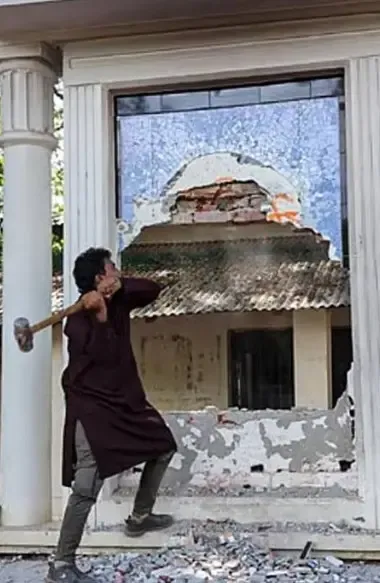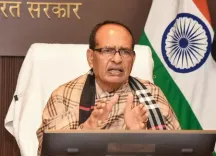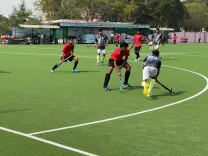Is Terrorism on the Rise in Dhaka? HUJI's Revival, ISI Meetings, and Jamaat's Support Alarm India

Synopsis
Key Takeaways
- HUJI is rapidly reviving its operations in Bangladesh.
- A supportive regime has allowed the group to establish new modules along the Indian border.
- Recent meetings between ISI and HUJI leaders indicate heightened collaboration.
- Release of key figures like Pintu poses a significant threat to India's security.
- The lifting of the ban on Jamaat facilitates the rise of radical groups.
New Delhi, Sep 25 (NationPress) The Harkat-ul-Jihadi-Islami (HUJI), an Islamist group based in Bangladesh, is rapidly rekindling its operations, fueled by a supportive regime in the nation, as per reports from Indian security officials.
During the tenure of Sheikh Hasina, the group was effectively restrained. However, since her removal from power, the HUJI has been actively working to establish modules along the Indian border.
Initially formed in Pakistan, the HUJI aimed to focus on Jammu and Kashmir, collaborating with the Lashkar-e-Taiba for operations in the region. However, as the Jaish-e-Mohammad emerged as a significant player in Kashmir, the ISI gradually shifted the group's focus to Bangladesh, intending to target West Bengal and the northeastern states of India.
While the HUJI had successfully set up several modules in Northeast India and West Bengal, its activities had dwindled in recent years due to increased security measures and vigilant monitoring by Indian agencies.
The previous Hasina administration had effectively suppressed the HUJI's operations, but with the appointment of Jamaat-e-Islami-backed Muhammad Yunus as the caretaker of the interim government, various radical factions, including the HUJI, have become alarmingly active.
With Yunus forging agreements with Pakistan, the ISI has found it remarkably easier to liaise with Bangladesh. Intelligence Bureau reports indicate that there have been at least six meetings between the ISI and HUJI leaders over the past three months, all aimed at rekindling operations and establishing additional modules near the Indian border.
The HUJI has also received security assurances from the Jamaat to facilitate the establishment of these modules, which has resulted in an unimpeded flow of arms, ammunition, and financial resources to the group.
A significant catalyst for the HUJI's resurgence was the release of Abdus Salam Pintu, a former junior minister and member of the Bangladesh Nationalist Party (BNP). Accused of financing terrorist activities from Pakistan-occupied Kashmir (PoK), Pintu was pivotal in facilitating HUJI's attacks against India. He was sentenced to death in 2008 for a grenade attack on Sheikh Hasina in 2004 but was released in December 2024 after serving 17 years.
Pintu played a crucial role in HUJI's weapon procurement, recruitment, and training initiatives at camps in PoK, including the training of HUJI madrasa students in firearms and explosives.
With the current regime's support and Pintu's return to freedom, Indian security officials are concerned that he will re-engage with the HUJI. His extensive knowledge of the group positions him as a valuable asset for the ISI to continue previous operations.
Moreover, Pintu is not the only individual with a troubling past released by the Yunus government following Sheikh Hasina's ousting; Sheikh Aslam, a member of the banned Ansarullah Bangla Team (ABT), was also freed in September 2024.
One of the most significant actions taken by the Yunus government was the lifting of the ban on the Jamaat, a group recognized for its radical ideology. This decision is instrumental in facilitating the resurgence of groups like the HUJI in Bangladesh, particularly with the direct assistance of the ISI, presenting a serious security dilemma for Indian authorities.










